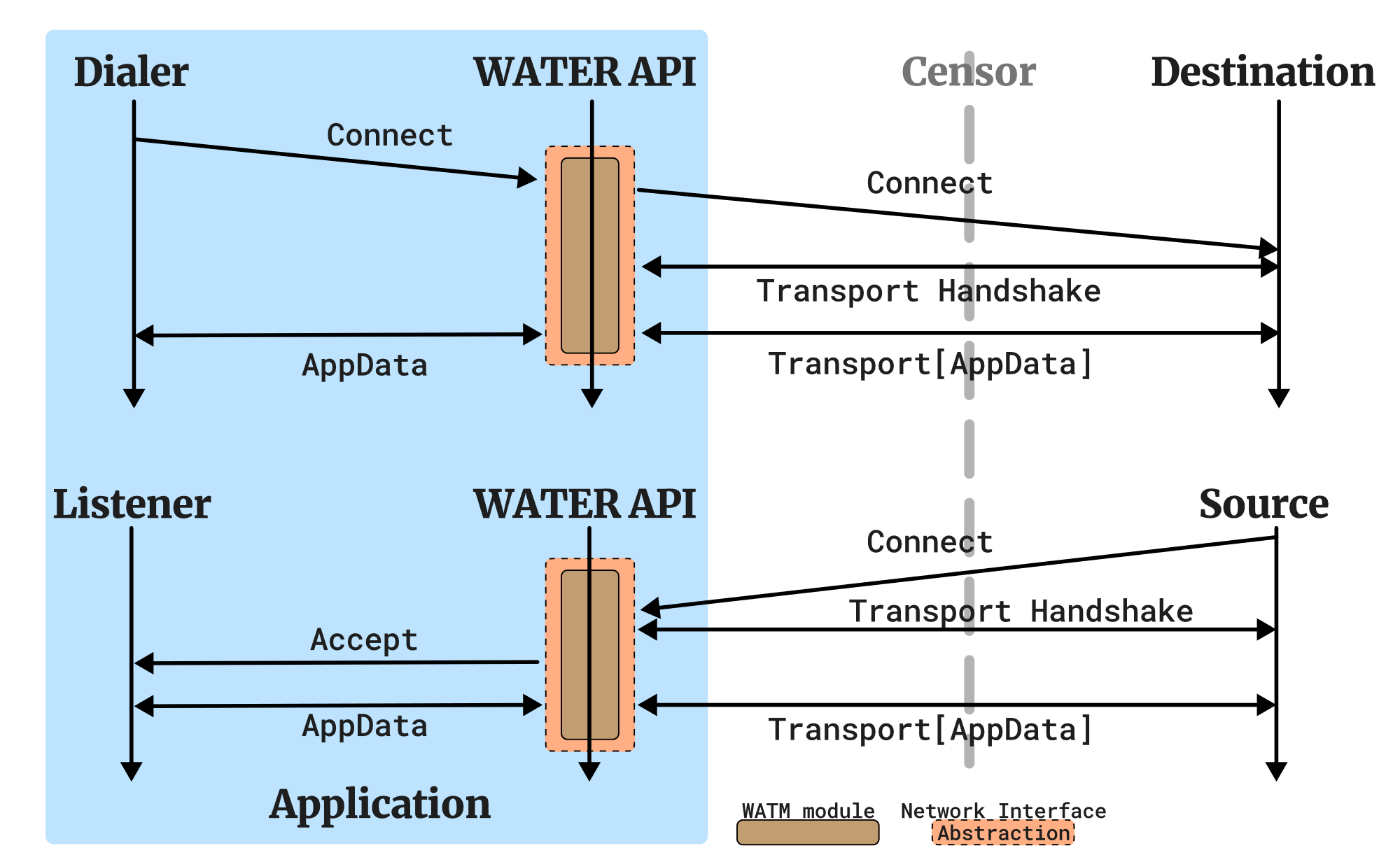– WATER –
WebAssembly Transport Executables Runtime
WATER is all about a new way to build, deploy, and execute new and updated pluggable transports. With WebAssembly, transport protocols could be written in any language that compiles to WebAssembly, distributed via multiple channels, and run in a secure, sandboxed environment in a tool written in a different programming language on a wide range of platforms.
Pluggable Transports and Censorship Circumvention
Pluggable Transports provides a flexible and modular way for censorship circumvention tools to integrate new transport protocols and/or update existing ones. Multiple popular circumvention tools, such as Tor, Psiphon, and Lantern, have adopted the pluggable transport design. However, the flexibility of pluggable transports is still limited. For example, the host application and the transport protocol must be written in the same programming language, and the transport protocol must be compiled into the host application, which makes deploying new transport protocols and updating existing ones not so efficient.
A more pluggable transport
WATER provides much more flexibility compared to existing pluggable transport designs. A matrix comparing WATER with other pluggable transport design approaches is available here.
How does WATER work?
The ultimate goal of WATER is to provide familiar network programming interfaces in multiple different programming languages which are backed by the WebAssembly-based pluggable transport modules.

With a WebAssembly Transport Module (WATM), WATER can be configured for either client-side or server-side applications as it provides both dialer and listener implementations. It is worth noting that a WATM may be written in a way to support either client-side or server-side applications, or both. Please consult the provider of the WATM for more information.
The architecture of WATER, especially how WATER is built, is available here.
Contacts & Get involved
WATER is a joint project with researchers from the University of Michigan and the University of Colorado Boulder. If you’d like to find out more or help support our efforts, please contact us at team@refraction.network or join the discussion panel we host here.